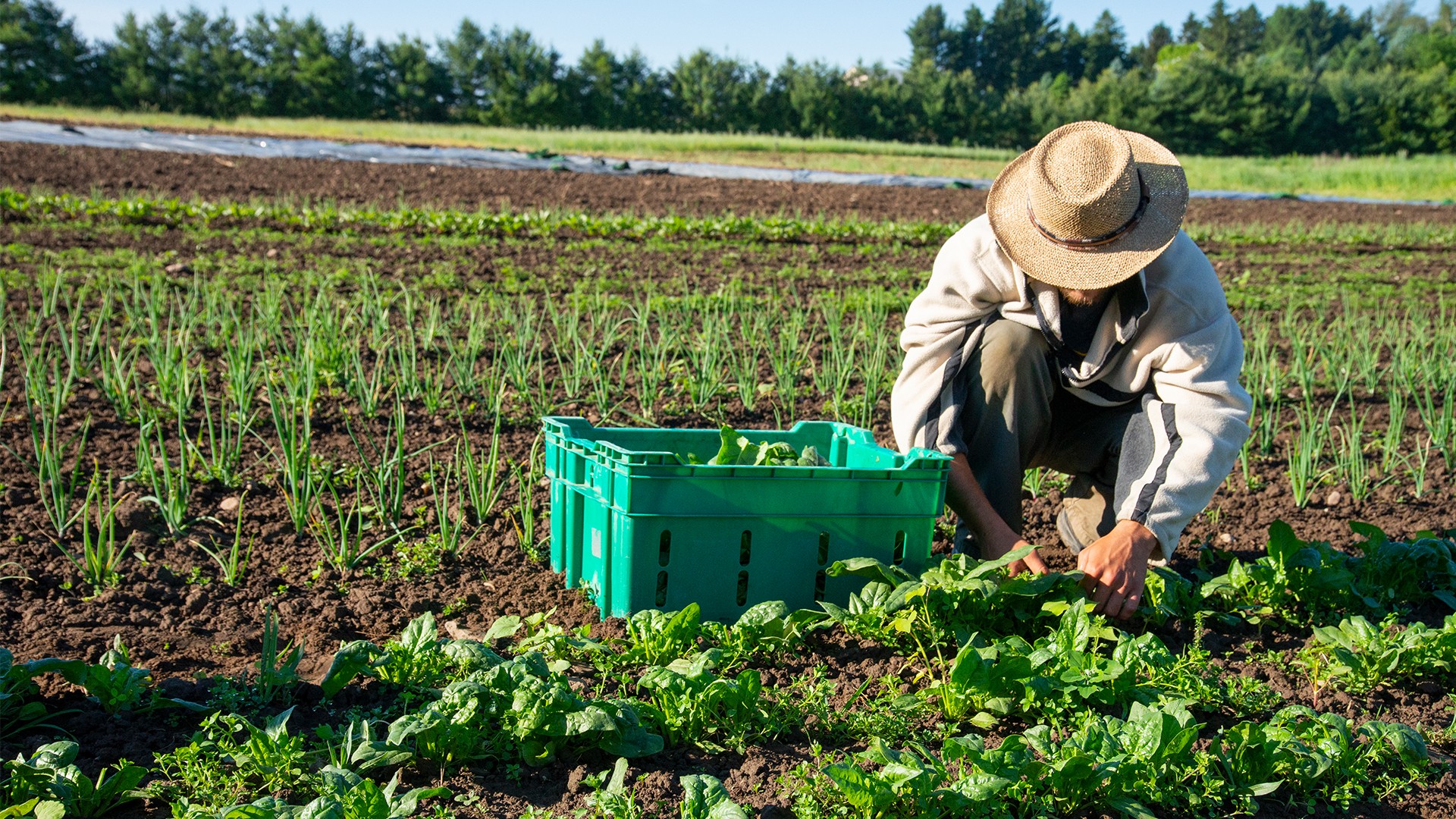Features of Farm Life in Washington State: A Guide for New Residents
Washington State is known for its stunning natural landscapes, from the snow-capped peaks of the Cascade Mountains to the rich, verdant valleys. It’s a place where unique climatic conditions create ideal farming opportunities. If you dream of a life away from the hustle and bustle of the city, Washington State offers many options for those who want to try farm life.
Benefits of living on a farm
- Fresh air and nature – farm life gives you the opportunity to enjoy nature every day. Here you are surrounded by fields, hills, and rivers, not the concrete and noise of the city.
- Own produce – growing your own vegetables, fruits or raising animals is not only economical but also healthy. Fresh produce straight from the farm becomes part of your diet.
- Closeness to Community – Living on a farm often means close relationships with neighbors and the community. Farmers support each other, which creates a strong sense of community.
Counties with farms
1. Yakima Valley
Farms in the Yakima Valley play an important role in the agricultural industry in Washington State and across the country. This region is known for its diverse produce, including fruits, vegetables, grapes for winemaking, and hops, which are used to make beer. The Yakima Valley is ideal for growing a variety of crops due to its climate and soils.

Yakima Valley farming highlights:
- Fruit Growing: The Yakima Valley is the largest producer of apples in the United States. Pears, cherries, peaches, nectarines, and plums are also grown here. Orchards make up the majority of the region’s farms, and produce is exported worldwide.
- Grape Growing and Winemaking: Yakima Valley is one of Washington State’s key wine regions. It produces grapes for red and white wine varieties such as cabernet sauvignon, chardonnay, merlot, and others. Winemaking also promotes agritourism, attracting tourists to wine tastings and wine festivals.
- Hop Production: This region is one of the largest producers of hops in the world. The majority of American hops are grown here, making the Yakima Valley the center of the beer industry. Hops are grown on extensive plantations, and this contributes to the local economy.
- Vegetable Growing: The region grows corn, carrots, potatoes, tomatoes, and other vegetable crops. Thanks to the abundant sunshine and irrigation system, farmers get stable and high yields.
- Livestock and Dairy Production: In addition to growing crops, dairy farming is also common in Yakima Valley. There are large dairy farms producing milk, yogurt, and cheese.
Conditions for farmers in Yakima Valley
The Yakima Valley is known for its dry and sunny climate, which creates ideal conditions for crop growth. Most farms rely on irrigation, utilizing water from rivers and reservoirs. Well-developed infrastructure and proximity to major transportation hubs allow for efficient transportation of produce both domestically and internationally.
Features of farm life in Yakima Valley
Farm life in the Yakima Valley is full of labor, yet satisfying work on the land. Local farmers utilize modern technology to improve efficiency, and actively participate in local farmers markets and agricultural festivals, which creates a strong sense of community and cultural exchange.
Yakima Valley farmers are also closely connected to the wine and beer industries, making their farms attractive to tourists who come for tastings and farm tours.
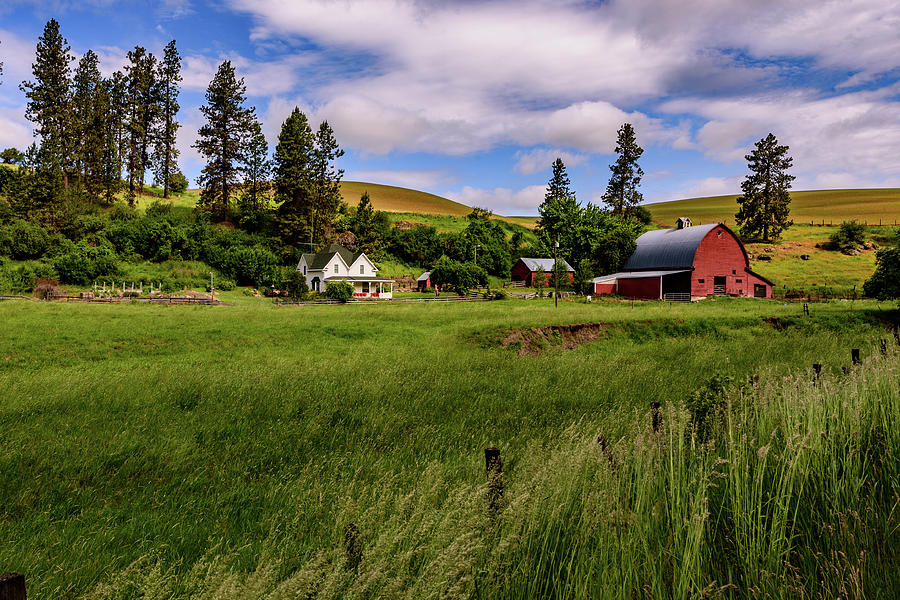
2. Skagit Valley
Skagit Valley is the heart of Washington’s flower industry. Many bulbous flowers such as tulips and daffodils are grown here, making it a popular tourist destination, especially during the blooming season. Skagit Valley is also home to dairy farming and vegetable cultivation.
Located in the northwestern part of the state, near the Puget Sound Bay, this valley is famous for its variety of agricultural products, beautiful landscapes and rich farming traditions.
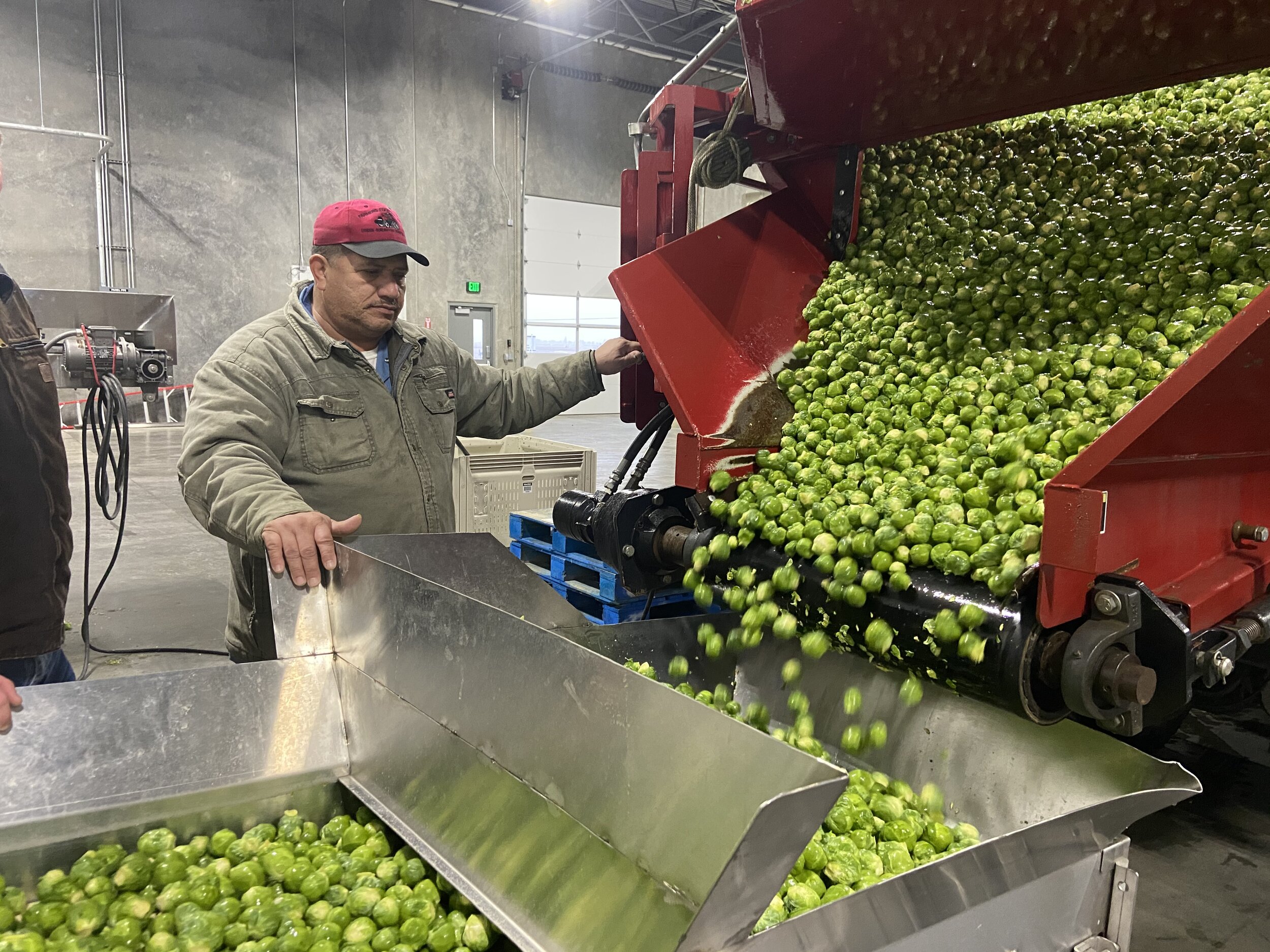
Skagit Valley farming highlights:
- Growing tulips and other flowers The Skagit Valley is known for its tulip fields, which attract thousands of tourists every year. The Skagit Tulip Festival, which is held every spring, makes this region popular not only with locals but also with tourists from all over the world. In addition to tulips, daffodils, irises and other flowers are grown here.
- Vegetable Growing Skagit Valley is an important center for growing vegetable crops such as cabbage, broccoli, carrots, potatoes, spinach and peas. Pumpkins and zucchini are also grown here, which promotes fall festivals and fairs. Thanks to the rich soils and humid climate, farmers achieve excellent yields.
- Berry Growing The Skagit Valley is one of the leaders in berry production in Washington. Strawberries, raspberries, blueberries, and blackberries are grown here and shipped not only to local markets but also out of state. Local farms often offer tourists and residents to participate in “U-Pick” (self-guided berry picking).
- Dairy Production Livestock also plays an important role in the valley’s agriculture. There are dairy farms that produce milk, cream, yogurt and cheese. Local dairy products are known for their quality and environmental friendliness.
- Organic Farming Skagit Valley is becoming an increasingly popular center for organic farming. Local farmers are actively adopting methods of growing without the use of pesticides and chemical fertilizers. Organic vegetables, fruits, and dairy products are in high demand by environmentally conscious consumers.
- Farmers’ Markets The Skagit Valley is famous for its local farmers’ markets where farmers sell fresh vegetables, fruits, dairy products, honey, and flowers. These markets not only support the local economy, but also foster cultural ties between citizens and farmers.
Conditions for farmers in the Skagit Valley
With its moderate climate, ample rainfall, and fertile soils, the Skagit Valley provides a favorable environment for agricultural activities. The region is low-lying, close to rivers and the Puget Sound Bay, which allows for high humidity and temperatures suitable for growing crops.
An important element of farming here is ecological resource management and environmental stewardship. Many farmers participate in water conservation and biodiversity programs.
Features of farm life in Skagit Valley
Life on farms in Skagit Valley is quiet and measured, but it also requires a lot of hard work. Local farmers are closely connected to nature and are proud of their role in sustaining agriculture. Festivals, fairs and farmers’ markets create an active community life, bringing farmers and townspeople together.
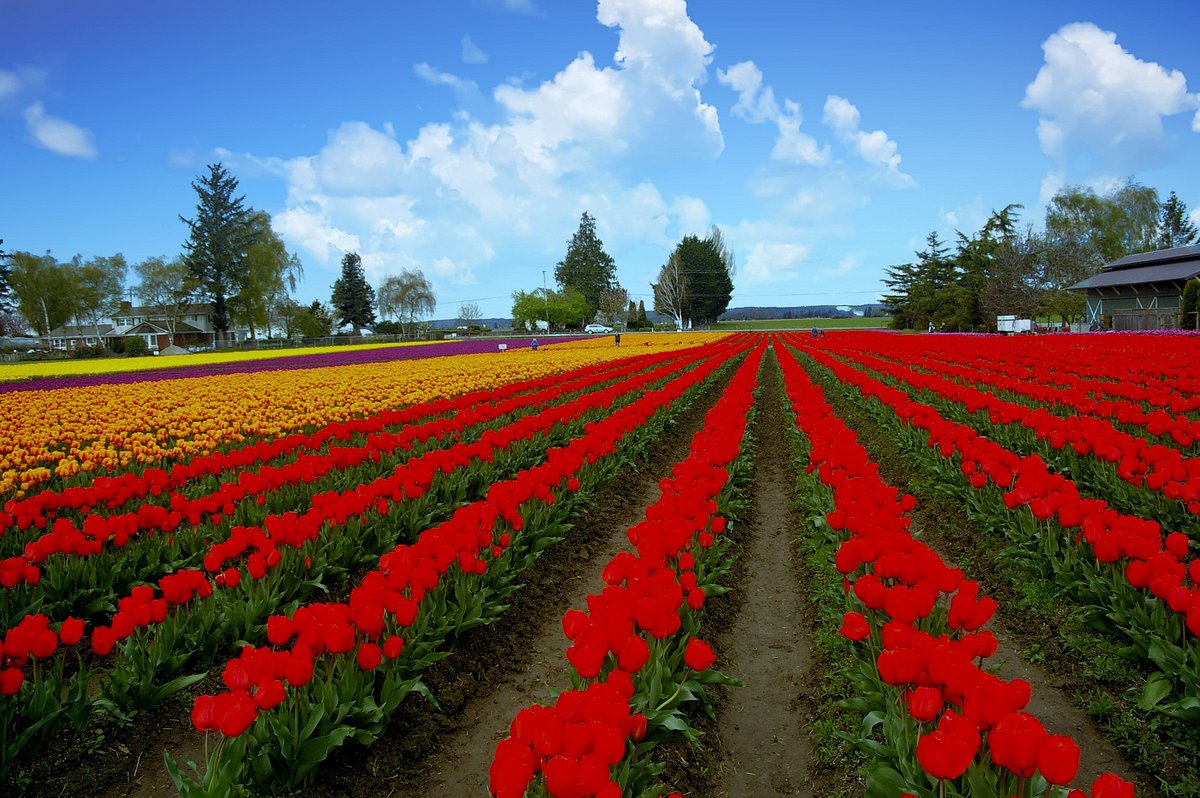
3. Columbia Basin
Columbia Basin is one of the largest growing regions for potatoes, wheat, and other grains. Corn and apples are also grown here. It is an ideal region for those interested in major agricultural projects and agricultural technology.
This region, located in the central part of the state along the Columbia River, has unique climatic and natural conditions that have made it a leading agricultural center. An extensive irrigation system providing water from the Columbia River has transformed a previously arid area into a flourishing agricultural region.
Main areas of agriculture in Columbia Basin
- Growing Wheat Columbia Basin is one of the largest wheat producers in Washington. Both soft and hard varieties are grown here and exported around the world. Wheat is the region’s key grain crop due to the combination of a favorable climate and fertile soils.
- Orchards Columbia Basin is famous for its orchards. Apples, pears, cherries and peaches are grown here. Especially valued is the Red Delicious apple, which has become a symbol of Washington. Most of the apple crop is exported, and the high quality of the fruit makes this region a world leader in apple production.
- Viticulture The Columbia Basin is one of the most important wine-producing regions in Washington State. Vineyards here produce a variety of grapes, including Cabernet Sauvignon, Chardonnay, and Merlot. The wine industry is booming and local wines are recognized internationally.
- Columbia Basin’s vegetable industry is a leader in potato production. This region is known for its potato fields, which supply major fast food chains and processing plants. In addition to potatoes, onions, carrots, corn and asparagus are grown here and are also heavily marketed domestically and internationally.
- Dairy Production Dairy farms play an important role in the economy of the Columbia Basin. Production of milk, cheese, and other dairy products is growing steadily. Modern dairy farms in the region combine tradition with advanced technology to improve product quality.
- Alfalfa Alfalfa is an important forage crop that is widely grown in the Columbia Basin for livestock feed and export. This highly nutritious forage is used extensively by both local farmers and exported out of state.
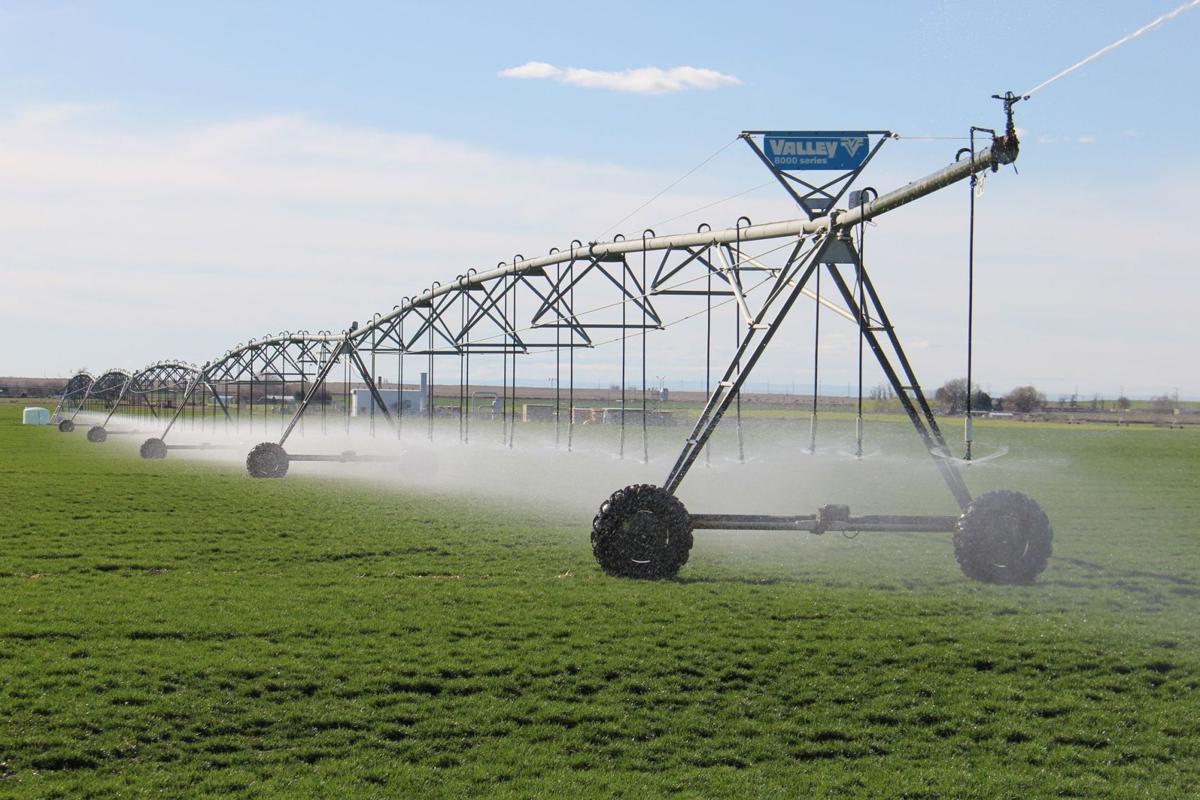
Columbia Basin Irrigation System
One of the main features of agriculture in the Columbia Basin is the extensive irrigation system that was established in the mid-twentieth century as part of the Columbia Basin Project. By utilizing water from the Columbia River, farmers were able to transform arid land into productive farmland. Irrigation plays a key role in ensuring high yields and allows for a variety of crops to be grown.
Advantages of farming in Columbia Basin
- Fertile Soils. The region has fertile soils formed by Columbia River sediments and ancient glaciers.
- Climate. The central part of Washington State has a relatively dry climate with warm summer days and cool nights, which is favorable for growing fruits and vegetables.
- Developed infrastructure. Modern irrigation systems, transportation networks and logistics make this region very convenient for farming.
Life on farms in Columbia Basin
Farmers in the Columbia Basin lead active lives that are closely tied to agricultural activities. Harvest seasons are a time of intense activity, when the fields are bustling with life. However, farm life here also offers tranquility, natural beauty and the opportunity to enjoy the unique scenery of the Columbia River and surrounding lands.
Local farmers participate in major agricultural fairs and expositions, such as the Grant County Fair, where they showcase their products and share their experiences with their peers. Columbia Basin is not just about agriculture, but a community that takes pride in its traditions and accomplishments.
Possible challenges
Although farming in Columbia Basin produces large yields and profits, farmers face some challenges such as:
- Dependence on irrigation. Much of the farmland depends on Columbia River water, and possible climate change or policy decisions could affect access to water.
- Climate change. Droughts and extreme weather events can make planning planting seasons and harvesting difficult.
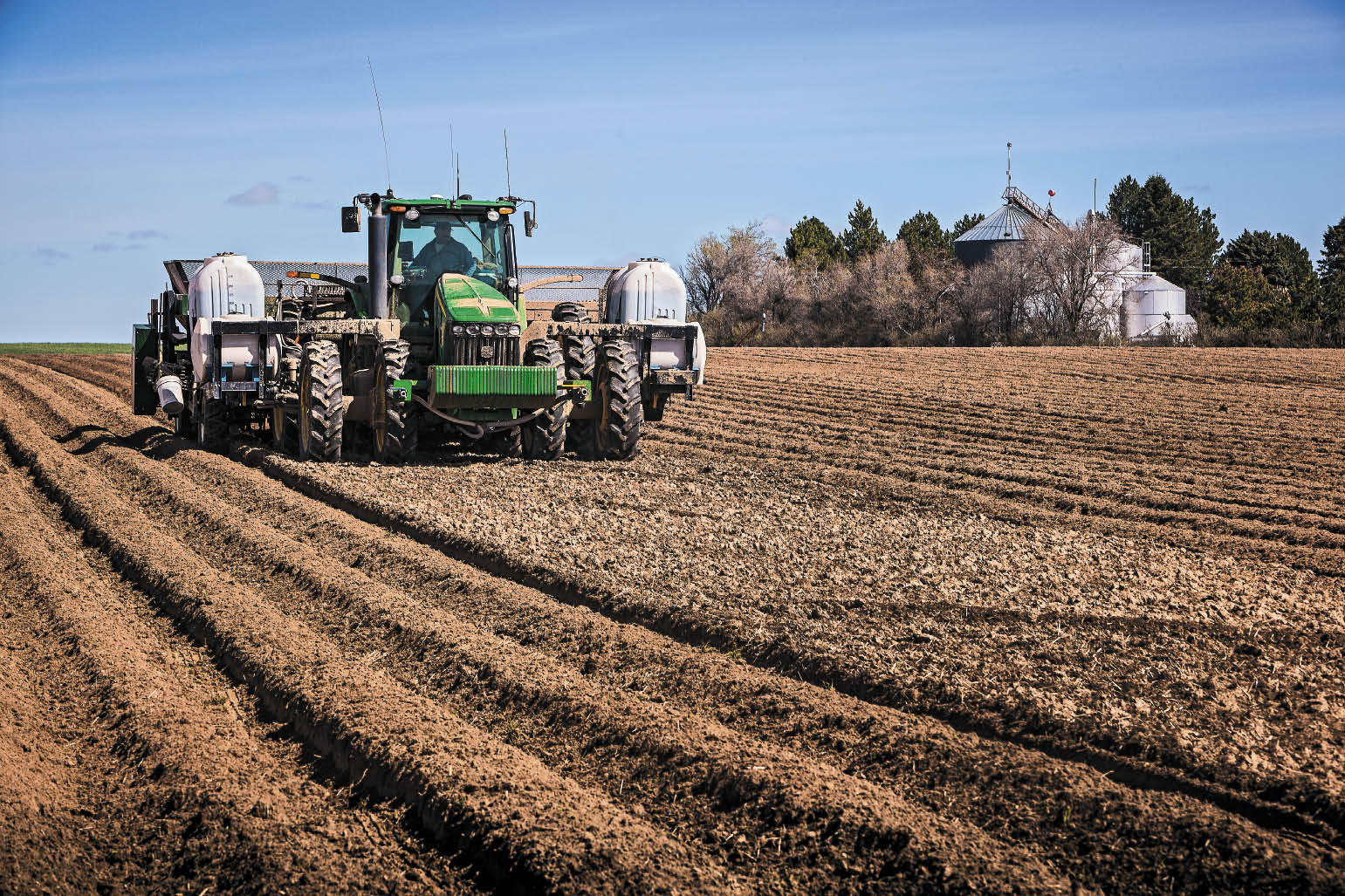
Columbia Basin farms are the heart of Washington State agriculture. Rich soils, a unique irrigation system, and a variety of crops make this region important to the state’s overall economy. Life on farms in the Columbia Basin offers both challenges and great opportunities for those who want to try their hand at agriculture.
4. Walla Walla
Walla Walla is famous for its wine and onion production. The region attracts farmers who are interested in the wine business and agritourism. It’s a nice combination of working on the farm and participating in wine festivals and other cultural events.
Walla Walla is an area with a rich agrarian history that has become known for its winemaking, orchards, and vegetable production.
Walla Walla’s major farming endeavors are:
- Winemaking. Walla Walla is one of the most famous wine regions in Washington State. It is home to more than 100 wineries that produce high-quality wines, especially red varieties such as cabernet sauvignon, merlot, and syrah. Vineyards cover significant acreage, and the region continues to grow as a wine tourism center.
- Vegetable production and orchards. The area is famous for its Walla Walla onions, which are popular both in and out of state. In addition to onions, apples, cherries, peaches, and pears are also grown here.
- Cereal Production. Farmers around Walla Walla grow wheat, barley, and other grain crops. These agricultural products play a key role in the region’s economy and are exported to other states and countries.
- Dairy and beef farms. In addition to crop farming, the Walla Walla area is also home to dairy farms and beef farming. Farms that produce high-quality beef and other meat products can be found here.
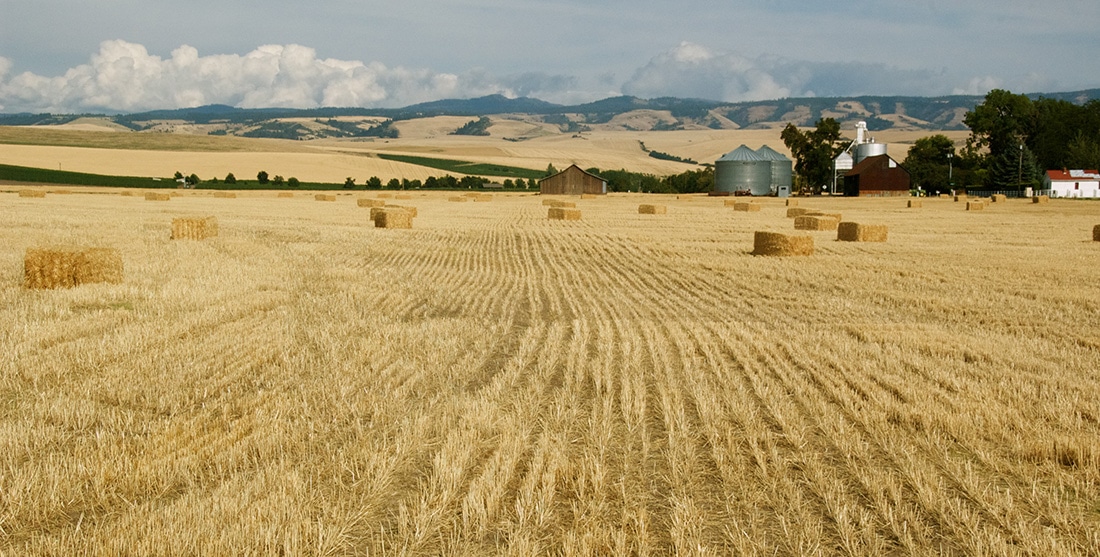
The benefits and challenges of farm life in Walla Walla:
Advantages:
- Fertile land and favorable climate are conducive to growing a variety of crops.
- Strong infrastructure and support for farmers at local and state levels.
- Winemaking and agritourism attract new residents and investors.
Challenges:
- Droughts and other climatic changes can affect crops.
- Seasonal fluctuations in supply and demand, especially for wine products and fruit.
Farm life in Walla Walla provides unique opportunities for those who want to farm or develop a farm business.
Challenges of farm life
- Hard physical labor – working on a farm requires effort. Whether caring for livestock or working in the fields, farmers are constantly busy, especially during harvest season.
- Weather dependency – climate can have a significant impact on farm productivity. Unexpected frosts or droughts can damage crops, requiring preparedness for such risks.
- Farm set-up – for those just moving to a farm, it is important to get the farm set up properly. The infrastructure needs to be ready when you start, whether it’s a barnyard, greenhouses, or irrigation.
How to get settled on the farm
- Research agricultural technology – today’s farms make heavy use of innovation. Irrigation automation, climate-controlled greenhouses, and crop processing equipment can help you optimize labor costs.
- Connect with local farmers – interacting with your neighbors will help you get up to speed and get farming tips.
- Prepare the infrastructure – before you start, make sure you have everything you need to run your farm: equipment, fertilizers, seeds, animals, etc.
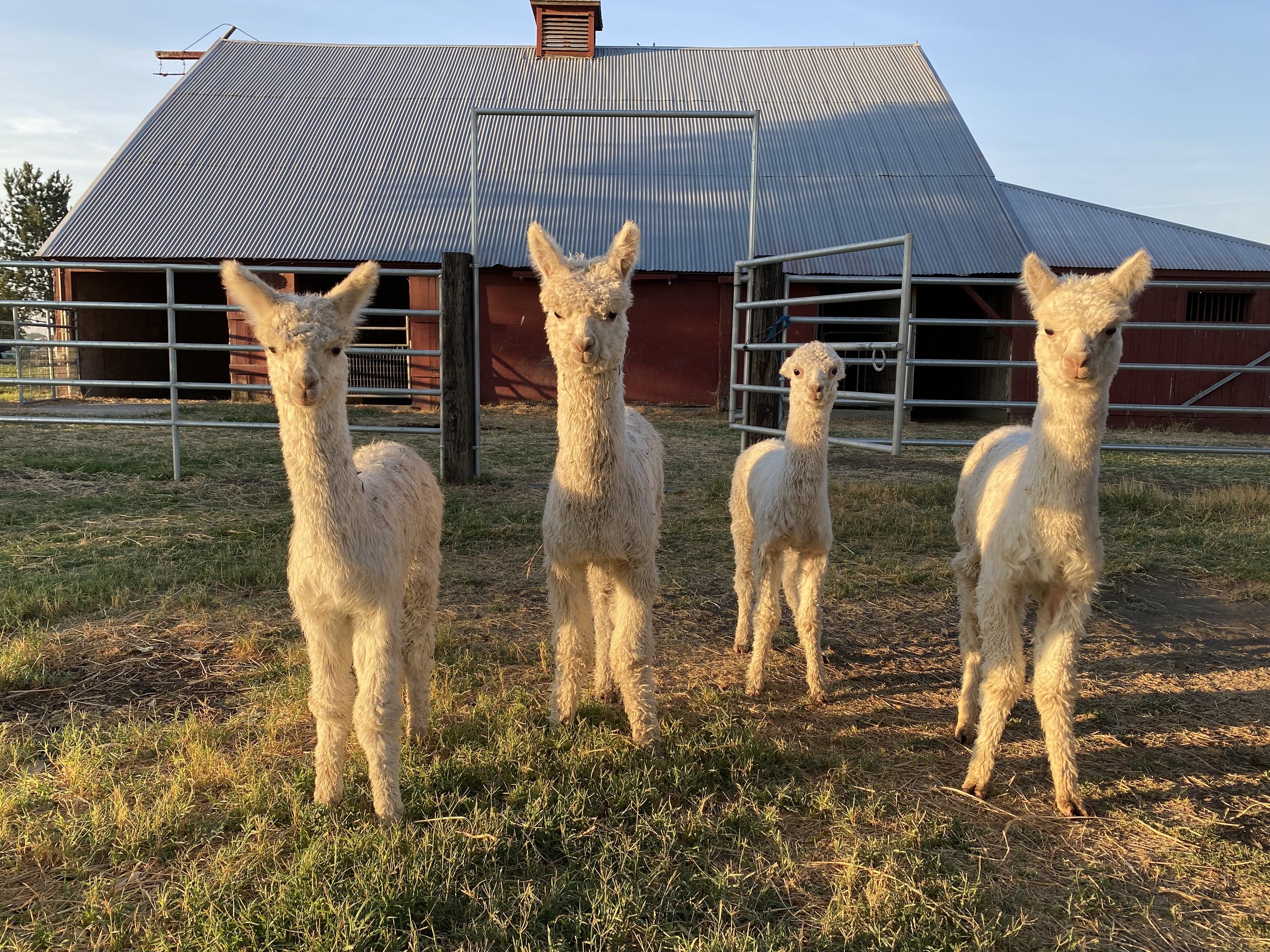
Why is Washington State attractive for relocation?
Washington State offers a unique environment for those looking to start a farming life. Rich land, diverse climate zones and high demand for farm products create excellent opportunities for farming. Plus, living on a farm allows you to enjoy nature, clean air, and peace of mind.
Our help with moving
Moving to a farm can be a daunting process that requires careful preparation and planning. Our moving company is ready to take care of all your moving needs. We’ll ensure that your equipment and personal belongings are transported with care, and we’ll help you get settled in quickly.
Don’t miss the chance to start a new life on a farm in one of the most scenic states!
Contact us in any way:
Telephone: (888) 282-6940


